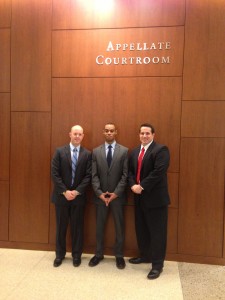If you are a typical high school student, where do you get your ideas on what attorneys do? Television and movies – that’s a pretty likely answer. So let’s role the tape and look at the reality of being a lawyer versus what the movies show.
For example, consider a clip from the 1998 movie, “A Civil Action.” After viewing it, Milwaukee Circuit Judge Carl Ashley’s reaction was, “It’s pretty sensationalized, but partly true.” Court rooms and law firms may not have movie-like drama often, but lawyers in real life do help people and can “make something right,” Ashley said.
In the movie, the lawyer played by John Travolta called some lawyers “bottom feeders.” But Marquette Law School Professor Rebecca Blemberg, a former prosecutor, said lawyers she has worked with almost all have been people who really want to help others, and a lot of people genuinely benefit from lawyers.
Milwaukee County Judge Joseph Donald said he wished some aspects of the movie were matched in real life. “I’d love to have theme music playing every time I’m in court,” he said.
And Marquette Law Professor David Papke said the real case that was the basis of “A Civil Action” didn’t turn out so well for the attorney for the plaintiffs – he tried to do the right thing and ended up filing for personal bankruptcy.
Joining the four in watching that movie clip (and several others) were 180 students from eight public and private schools that took part in Youth Law Day at Marquette Law School’s Eckstein Hall on March 12. The event was sponsored by the Law School, the Saint Thomas More Lawyers Society, and the Milwaukee County district attorney’s office. Even during their spring break week, about 20 Marquette Law students assisted during the mock trial and shared their educational experiences with the high school students. Law student Lindsey Anderson took a leading role in organizing the event.

